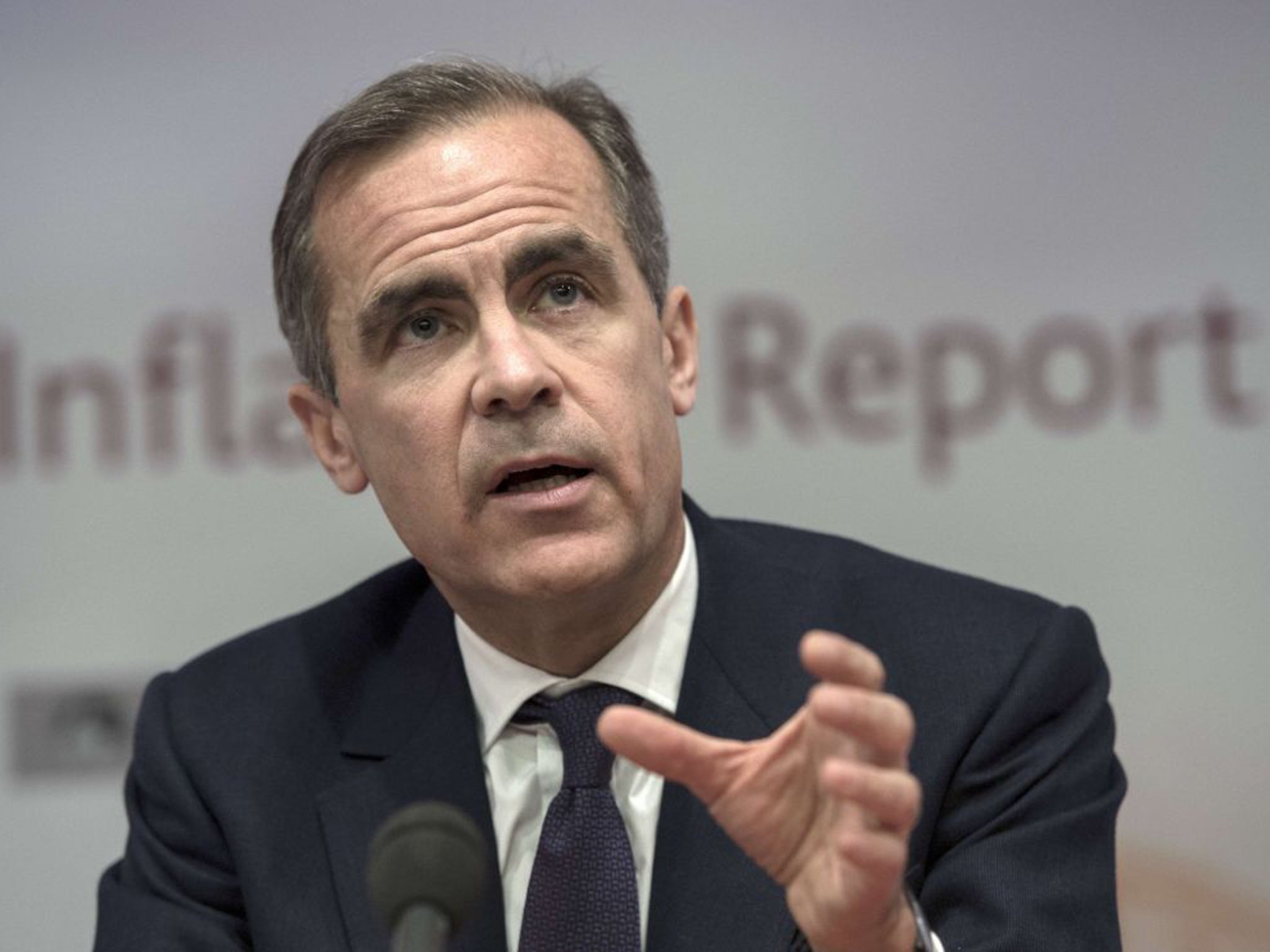Bank of England governor relaxed about global bond sell-off
Around $400bn has been wiped off the value of global fixed-income markets over the past three weeks

Dramatic volatility in global bond markets, which has led to steep falls in the value of government bonds, should not be a cause for alarm, according to the Bank of England Governor Mark Carney.
10-year government bond yields in the US, UK and Germany have all shot up by around 70 basis points this year, leaving City traders and analysts scratching their heads about the causes of the price fall and debating its economic significance. Around $400bn has been wiped off the value of global fixed-income markets over the past three weeks.
Unveiling the Bank’s quarterly Inflation Report Mr Carney struck a sanguine tone about the sell-off, saying the view of the Monetary Policy Committee is that the sharp jump in yields, which move inversely to prices, probably represents a rational market correction rather than a panic that could threaten financial stability or choke off the economic recovery.
The Governor said the valuation of long-dated advanced country bonds had become extremely stretched earlier this year, with yields unnaturally compressed. “In terms of fundamentals it was not exactly clear why that had been the case so it’s not exactly surprising that they’re moving back up” he said. “In the environment of a sustained global expansion, the extremes earlier this year would have been unlikely to be sustained in the fullness of time”.
Mr Carney also stressed that the price of bonds were still historically very high, despite the recent sell-offs, and that market interest rates were, as a result, still highly stimulative. “If you look at the broad brush in terms of where the bond market is, even with the moves upwards, it is only partial retracement of moves over the course of the past year…real interest rates are still flat to negative”.
The sell-off continued yesterday with Germany 10 year Bund yields rising back above 0.7 per cent while 10 year Gilt yields crept back above 2 per cent. US 10 year yields, however, declined slightly on the back of flat local retail sales data.
City analysts have been debating whether “technical” factors, such as banks choosing to hold fewer sovereign bonds for regulatory reasons, or macroeconomic “fundamentals”, such as the improvement in the growth prospects for the eurozone, are driving the sovereign debt markets. Mr Carney said though there were always technical influences on bond markets but that the Bank of England’s view on the correction was that it was “fundamentally driven”.
On the UK outlook, the Bank cut its growth forecasts for the next three years but the Inflation Report did not challenge market expectations that interest rates are likely to remain fixed at historic lows well into next year. The Bank now expects growth of 2.6 per cent this year, down from 2.9 per cent in February. Growth for 2016 is also revised down from 2.9 per cent to 2.6pc and from 2.7 per cent to 2.5 per cent in 2017. The Bank said the revisions were driven by weaker expectations for productivity growth. The Bank stressed that the outlook for the UK “remains solid”.
However, the Bank did warn of the dangers of a “disorderly” end to the Greek debt negotiations with the eurozone and the potential global financial volatility that could come when America’s central bank hikes interest rates, something markets currently expect to happen in the autumn.
The Bank’s UK inflation forecast was little changed. It still expects a brief period of deflation this Spring, before prises bounce back later in the year. Inflation at the end of 2016 is seen at 1.7 per cent, down from 2.1 per cent in the last report, but the 2 per cent inflation target is still hit at the end of the Bank’s three year forecast horizon.
Subscribe to Independent Premium to bookmark this article
Want to bookmark your favourite articles and stories to read or reference later? Start your Independent Premium subscription today.

Join our commenting forum
Join thought-provoking conversations, follow other Independent readers and see their replies